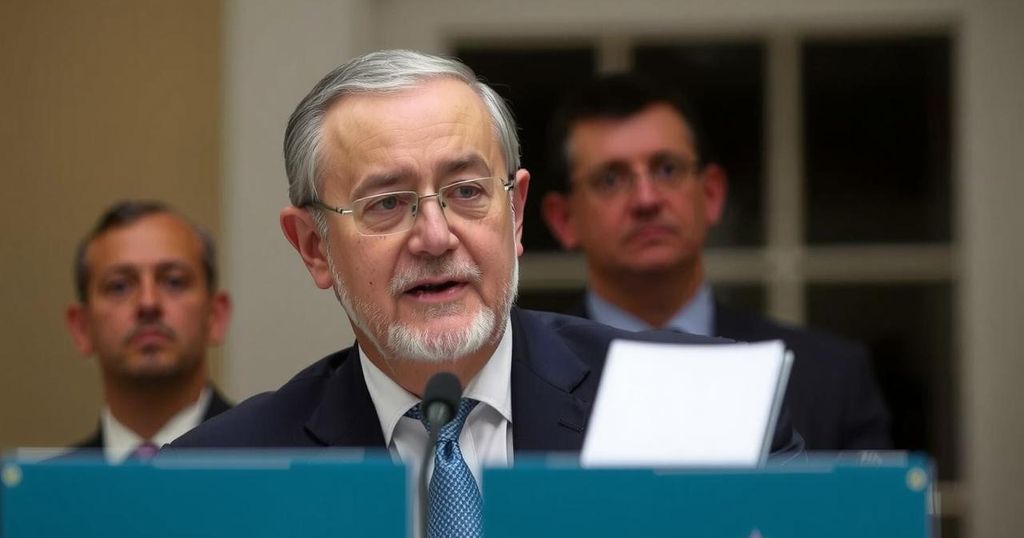Syria’s Interim Leader Signals Four-Year Timeline for Elections After Assad’s Fall

Syria’s interim leader, Ahmad al-Sharaa, stated elections may take up to four years to organize following the fall of Assad’s regime. He indicated that a new constitution would likely take three years to draft, highlighting the need for a robust infrastructure and a commitment to avoiding previous governance mistakes. Al-Sharaa is pursuing international legitimacy, distancing himself from past affiliations, and engaging with regional powers.
The de facto leader of Syria, Ahmad al-Sharaa, remarked that organizing elections may take as long as four years following the recent ousting of Bashar al-Assad’s regime by his group, Hayat Tahrir Al-Sham (HTS). He emphasized the need to establish proper infrastructure and draft a new constitution, a process he anticipates could take up to three years. This interim government has pledged to facilitate a transition, yet key details regarding the power transfer remain uncertain. Al-Sharaa highlighted that recent opportunities require a reevaluation of Syria’s governance to prevent past failures, including drafting a constitution intended to stabilize and modernize the country.
The recent transition in Syria follows the overthrow of dictator Bashar al-Assad, instigated by the Islamist militant group HTS. Ahmad al-Sharaa, formerly known as Abu Mohammad al-Jolani, now leads a government tasked with restoring stability and establishing democratic processes. His comments suggest a focus on rebuilding Syria’s infrastructure before elections can occur, alongside a commitment to drafting a new constitution. Furthermore, the political landscape is shifting, with international actors like the United States and Ukraine beginning to engage with the new leadership, marking a significant transition in Syrian diplomacy.
In summary, Ahmad al-Sharaa’s statements signal the complexities of establishing a new governance structure in Syria. The anticipated lengthy timeline for elections and constitutional development reflects the challenges the interim government faces amid ongoing diplomatic maneuvers. Engaging with international allies, particularly Saudi Arabia and distancing from prior affiliations, suggests a strategic shift toward securing legitimacy and stability in the region.
Original Source: www.cnn.com







